Farming
Minister kicks access issue into long grass
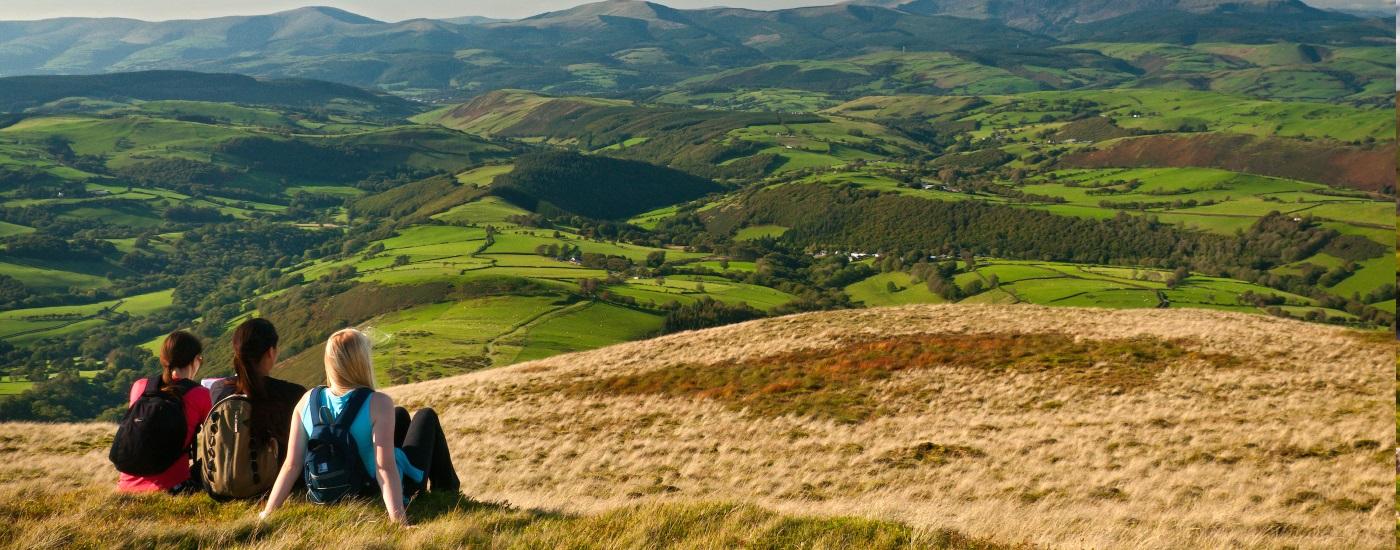
THE SUSTAINABLE MANAGEMENT of Natural Resources Consultation process has finally concluded, but there’s no sign of progress, according to Rebecca Williams, Director of CLA Cymru.
Saying that the time has come to make decisions, Ms Williams said: “How we manage our natural resources, must form part of our vision for a vibrant, sustainable, competitive rural economy delivering against a range of public goods.
Responding to the Welsh Government Environment Minister, Hannah Blythyn AM’s statement summarising the responses to the Sustainable Management of Natural Resources (SMNR) consultation, Rebecca Williams, Director CLA Cymru, said: “We have a unique opportunity to define the future of land management in Wales. Our government processes really must deliver better and faster results. We need to find answers to the vital questions in land management about how the Welsh Government’s Five Core Principles be delivered as a working plan.”
“Last year’s SMNR consultation addressed a very broad range of issues many of which were complex, others seemed disjointed from the main theme. This was an unwieldy and demanding exercise both for organisations and for individuals. The process was protracted, the outcome has been delayed. The substantial number of responses may be encouraging to the Government, but it does also bear witness to the level of concern about the potential vital impact the proposals may have on rural business and the countryside community. There is no doubt that greater subtlety and engagement is required in stakeholder-management.”
While there were over 19,000 responses to the consultation, over 16,000 of those were focussed on one issue – access to land. Of those 16,000 responses, only around 450 answered the questions posed by the consultation and there was a massive number of responses from individuals and campaign groups in favour of widening access to the countryside.
The Welsh Government has, however, shied away from specific legislation to provide greater rights for ramblers, canoeists, cyclists, and other groups in favour of achieving more access to Wales’ countryside.
In a written statement delivered to the Assembly on June 19, Environment Minister Hannah Blythyn said: “There were strong but differing views on how best to reform access legislation. We therefore believe that now is not the right time for substantive reform. But we are committed to exploring selected aspects of change where there was greater consensus, including on some of the administrative arrangements and multi-use paths. We will continue to facilitate further discussions through established groups such as the National Access Forum.”
Those remarks have been met with disappointment from Ramblers Cymru, the charitable organisation and campaign group that fights for walkers’ access to land.
Angela Charlton, Director of Ramblers Cymru told The Herald: “‘As Wales’ walking charity working to protect and expand the places people love to walk, Ramblers Cymru is disappointed that a year after this consultation was held, we are no clearer about Welsh Government’s ultimate vision for improving access to the Welsh outdoors.”
Ms Charlton drew attention to consultations not producing positive results in terms of policy or legislation, continuing: “We have had 2 major consultations on these issues in the last 3 years, and now face further consultation on as yet undefined changes.
“Through our campaign over 2,500 people took the time to support our call for increased and improved access and protection of our paths, and it is frustrating that we seem no closer to seeing the changes needed. We are however, pleased to continue engaging with Welsh Government to ensure Wales is a world class country for walking and will continue putting proposals forward to help achieve this.”
While the NFU noted the strength of the responses regarding access to land, NFU Cymru President, John Davies said: “The consultation contained a number of proposals that were extremely worrying to farmers including granting higher access rights which would have enabled cycling and horse riding on footpaths as well as extending and amending the list of restrictions on CRoW land. We, therefore, welcome the announcement from the Environment Minister that now is not the right time for substantive reform.”
John Davies continued: “We note, however, the Welsh Government is committed to exploring aspects of change where the consultation process showed greater consensus including some of the administrative arrangements and multi-use paths. We await information on what these specific areas will be and would highlight that, given 80% of the land area of Wales is agricultural land, farmers are key providers of the landscape and countryside upon which many access and recreational activities depend. Any reforms must consider the safety of access users and should not result in increased costs, burden and liabilities being placed on farmers in Wales.
“We are pleased that the consultation process revealed consensus in the area of keeping dogs on fixed length leads in the vicinity of livestock, which was a generally accepted proposal. The worrying of livestock by dogs is a key concern to our members and we would hope this is an area that can be progressed in the near future.”
FUW President Glyn Roberts said: ” The FUW welcome the news that the Welsh Government have decided now is not the right time for a substantive review to reform access legislation.
“Wales has approximately 16,200 miles of footpaths, 3,100 miles of bridle-paths, and 1,200 miles of byways, and since 1998 the area of land accessible by right to the public has increased threefold. The evidence makes it clear people are not using what is already there, so any changes should focus on increasing responsible use of existing access.”
Farming
Natural Resources Wales urges farmers to follow safe slurry spreading rules

NRW is reminding farmers across Wales to take key steps to prevent pollution as the organic manure spreading season re-opens.
During the autumn and winter “closed periods”, restrictions were in place to stop slurry and other high-nitrogen manures being spread, helping reduce the risk of agricultural pollution.
Grassland spreading can resume from Thursday (Jan 16), with spreading on tillage land re-opening on Friday (Jan 31). However, NRW said a number of controls under the Control of Agricultural Pollution Regulations (CoAPR) will remain in force until the end of February.
Those restrictions include limits on application rates — no more than 30m³ of slurry per hectare, or eight tonnes of poultry manure, in a single application — with at least three weeks required between applications.
Before spreading organic manure, producers must also carry out field inspections to assess weather and soil conditions, slope, ground cover and proximity to watercourses, to help reduce the risk of runoff.
Farm businesses are expected to plan and record all applications in their Nitrogen Management Plan to ensure nutrients match soil and crop need and remain within nitrogen limits.
Spreading is prohibited on waterlogged, flooded, snow-covered or frozen ground — including soil that has been frozen for more than 12 hours in the previous 24 hours.
NRW said its teams will continue to support farmers while monitoring compliance.
Simon Griffiths, team leader of NRW’s Agricultural Pollution Inspection Team, said: “As the closed periods come to an end, we want to remind farmers, tenants, landlords and contractors of the restrictions which remain in place until the end of February.
“This means anyone considering spreading organic manure needs to ensure the conditions are suitable before work starts.
“NRW is committed to protecting the environment and any instances of pollution will be investigated and appropriate enforcement action taken.”
NRW is urging farmers and members of the public to report pollution incidents immediately via its online “report it” form or by calling 0300 065 3000.
Business
Redevelopment scheme at Castle Villa farm to be considered
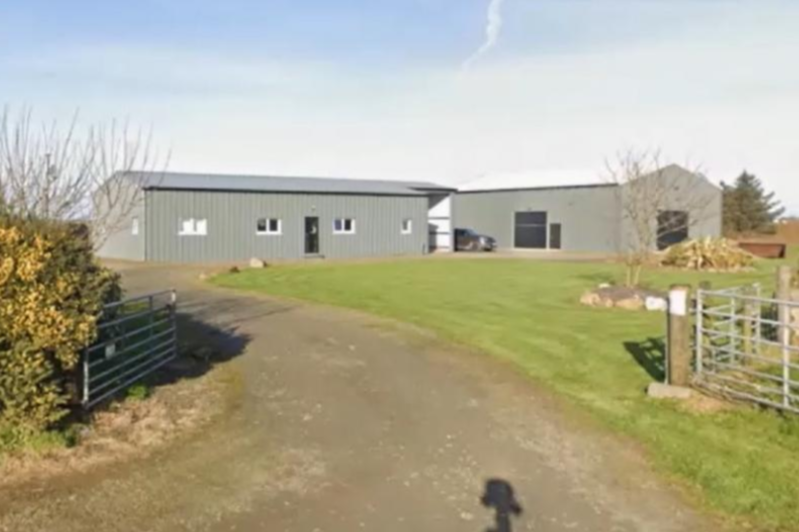
A PREVIOUSLY refused call for the relocation of a Pembrokeshire farm diversification scheme which packages and distributes specialist medical equipment across Europe will be decided by full council after being backed a second time by councillors.
In an application recommended for refusal at the January meeting of Pembrokeshire County council’s planning committee, Mr Van Der Spoel sought permission for the relocation and expansion of an existing farm diversification business into an existing agricultural building at Castle Villa, Hayscastle.
It had previously been recommended for refusal at the December meeting, but members went against the officer recommendation with a ‘minded to’ approval, meaning it returned to the January meeting after a ‘cooling off’ period.
Back in July a similar application by Mr Van Der Spoel, through agent Harries Planning Design Management, was refused by planning officers.
A supporting statement for that application said the Dutch-born applicant, together with his wife and adult daughter ran the farm diversification business packing specialist medical insulated insulin supplies at their 135-acre sheep farm.
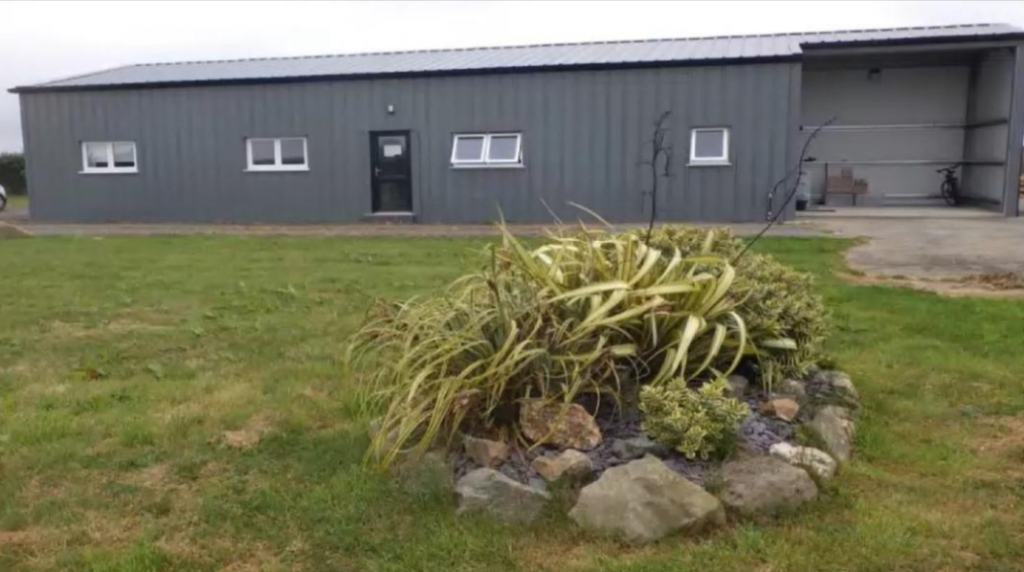
It added: “The business run from this site is FRIO ASTRID EURO Ltd, which has a franchise agreement with FRIO UK. This business has been run from Castle Villa since its incorporation in 1998. The business was initially run from the stable building on the farmyard at Castle Villa.
“The business set-up involves receiving stock from FRIO UK in Wolfscastle, packaging orders and distributing the stock to seven Western Europe countries.”
Wolfscastle-based FRIO produces the world’s first patented insulin cooling wallet which keeps insulin and other temperature-sensitive medicines cool and safe.
The scheme for the business, said to have outgrown its current site, was refused by county planners on grounds including a lack of “robust evidence” to prove it couldn’t be sited within a nearby settlement or an allocated employment site, such as Haverfordwest.
The latest application is recommended for refusal on similar grounds.
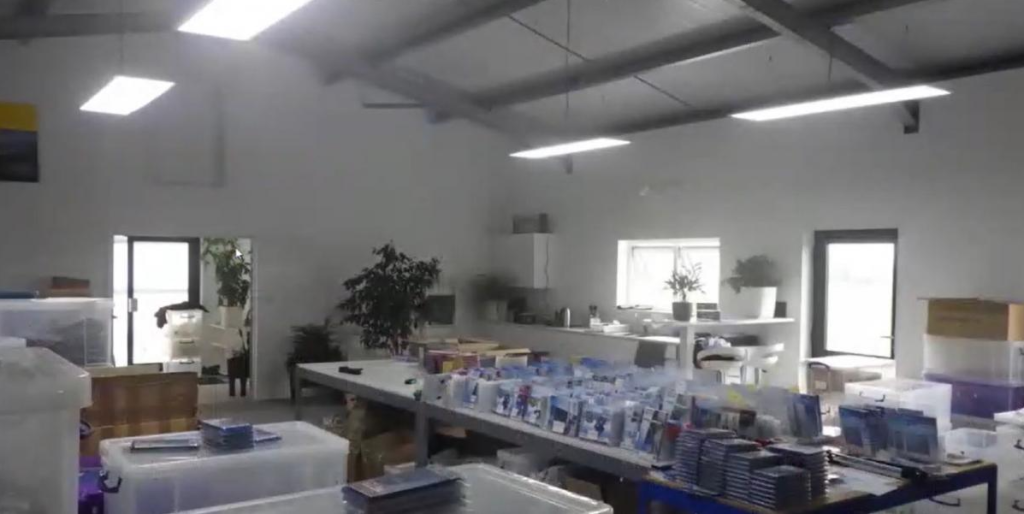
At the December meeting, members heard from agent Wyn Harries his client’s business, selling into Holland, Belgium, Switzerland, and Germany, accounted for some 20 per cent of FRIO UK’s trade on its own.
Mr Harries spoke again at the January meeting, saying previous articles in the Western Telegraph had shown a great deal of public support for the scheme, which had no local objections, adding of the previous ‘minded to’ approval: “Comments on the Western Telegraph [story] show the general populace would be like-minded with the councillors.”
Cllr Mark Carter said: “The only comments [locally] are why aren’t they allowed to continue? It’s almost an ideal business, they are there, it’s tidy, they are getting on with it, there’s never a complaint, it is very hard to see the business that is going on there; I’m absolutely fully supportive of this family.”
Officers had, if members were again supportive of the scheme, proposed a Section 106 legal agreement condition for approval, to ensure the FRIO ASTRID storage and distribution use remains in the same ownership and control as the existing farm business.
A call by Cllr John T Davies to again go against the officer recommendation of refusal was made, supported by 11 members, with one voting for refusal.
The application will now go before a future full council meeting for a final decision, expected to be the March meeting.
Business
Cresswell Quay potato farm allowed to keep holiday let

A CALL to allow a 600-acre Pembrokeshire potato farm to keep a holiday let erected “in innocence” without permission, which is said to be essential for supporting the business, has been approved.
In an application recommended for approval at the January 13 meeting of Pembrokeshire County council’s planning committee, Mr and Mrs I and F Elliot sought permission for the continued use of a mobile unit with a veranda as tourist accommodation at Cresswell Barn Farm, Cresswell Quay.
Cresswell Barn Farm supplies potatoes to Welsh supermarkets and the site has a certified campsite.
The application was before the committee rather than being delegated for an officer decision as it was recommended for approval, subject to the completion of a Section 106 legal agreement essentially keeping it for holiday use only, despite being in conflict with the development plan and was made by a close family member of an officer in the planning service.

An officer report accompanying the application said an enforcement investigation was started way back in 2012 following a claim a caravan was located at the site and was being used for residential purposes.
That was closed in 2023; a 2022 investigation taking place after an allegation a structure on-site was being used for holiday letting.
A 2023 certificate of lawfulness application was made to regularise the breach of planning, saying the unit had been used for residential purposes for more than a decade, but insufficient information was provided to allow it, the report said.
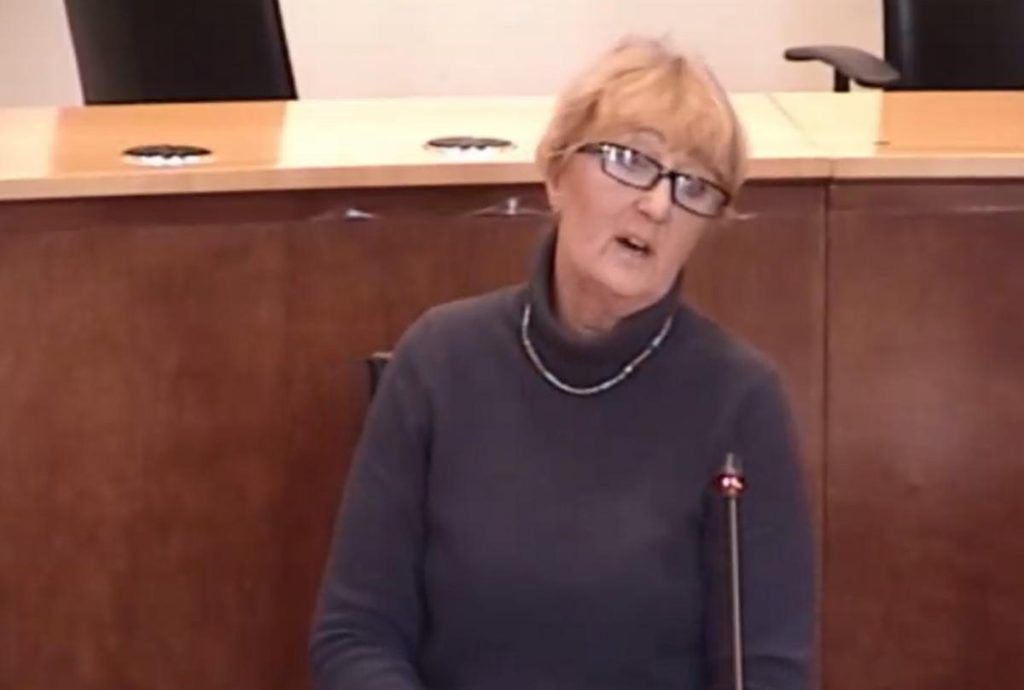
An appeal against this was later made to Planning and Environment Decisions Wales (PEDW) but was withdrawn by the applicant.
It said the enforcement action was ongoing, leading to the formal planning application.
Of the site itself, the report said: “The agent has confirmed that due to many variables, there is no typical year for the enterprise in terms of profitability and that the income generated from tourist related activities at the farm, is critical to the farming enterprise. The high-quality holiday unit therefore provides an additional income stream for the farming enterprise.”
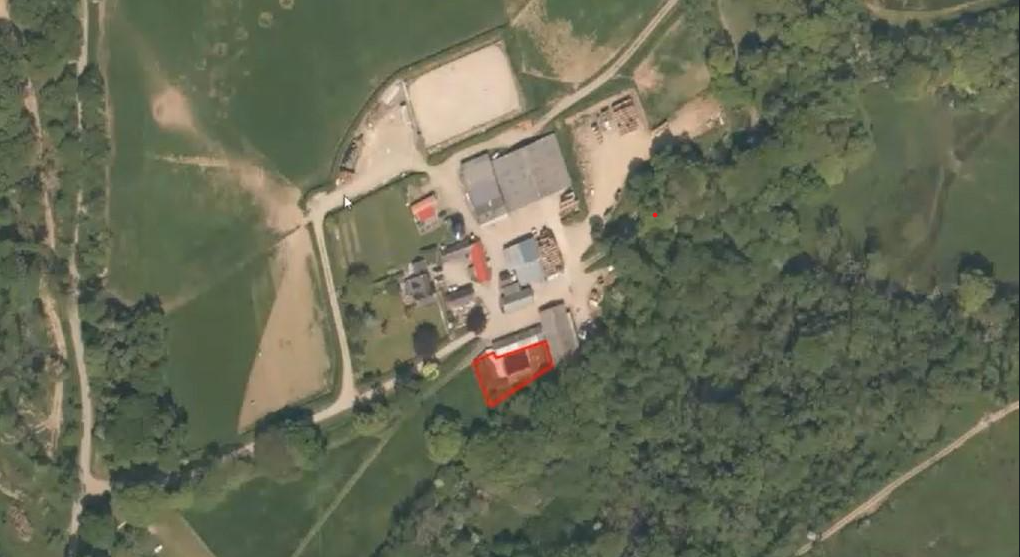
It added: “The holiday unit is located adjacent to buildings that make up the farm complex, with the accommodation offering guests an immersive rural experience that introduces them to aspects of the rural economy.
“Information submitted in support of this application confirms that the income from the holiday uses at the site is critical to supplementing the potato farming enterprise.”
Speaking at the meeting, Fiona Elliot said the holiday let was a small-scale part of the wider farm complex; the building having been on-site for some 15 years, the applicants more recently “in innocence” using it as a holiday let, which visitors have described as “five-star,” not realising they needed planning permission.
Following a call by Cllr Brian Hall to back the officer recommendation of conditional approval, members unanimously supported that.
-

 Crime5 days ago
Crime5 days agoMilford Haven man tells jury he feared being run over outside pub
-

 Crime6 days ago
Crime6 days agoMan jailed after samurai sword brandished in Pembroke Dock street brawl
-

 Crime7 days ago
Crime7 days agoFather jailed for 35 years after baby hurled at television
-

 Education7 days ago
Education7 days agoPembrokeshire Learning Centre placed in special measures following Estyn inspection
-

 Crime5 days ago
Crime5 days agoDock woman sentenced after assault on neighbour during ‘psychotic episode’
-

 Crime7 days ago
Crime7 days agoMilford Haven man, 65, convicted of sexual assault on teenage girl
-

 Crime5 days ago
Crime5 days agoMilford Haven man denies sexual assault charge
-

 Crime5 days ago
Crime5 days agoOn-duty paramedic racially abused at Withybush General Hospital











































